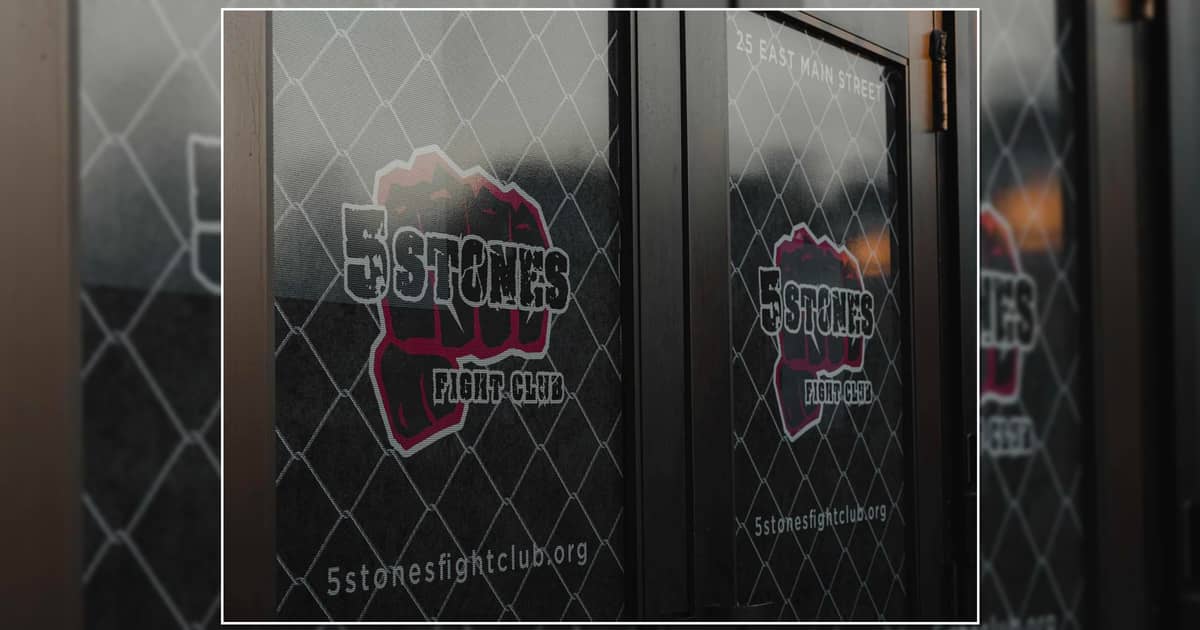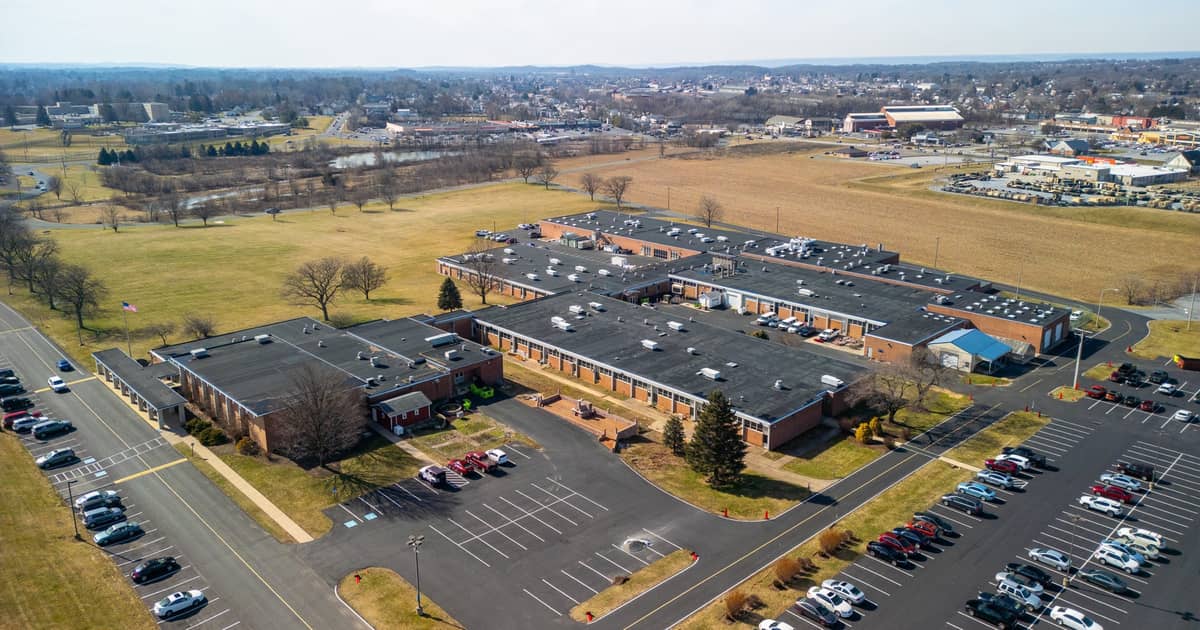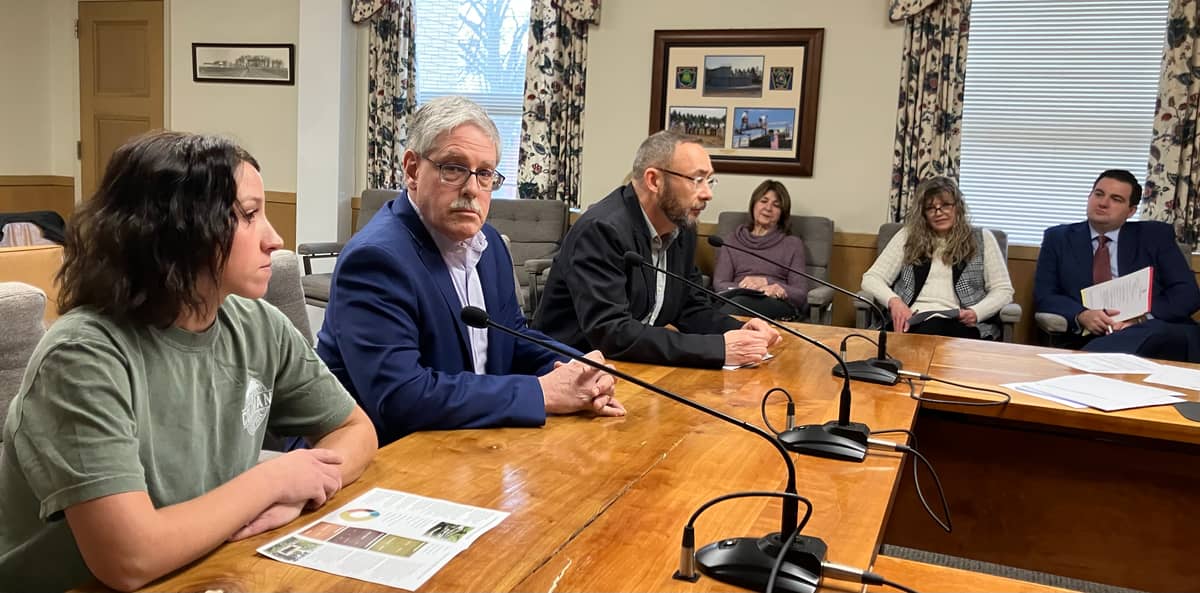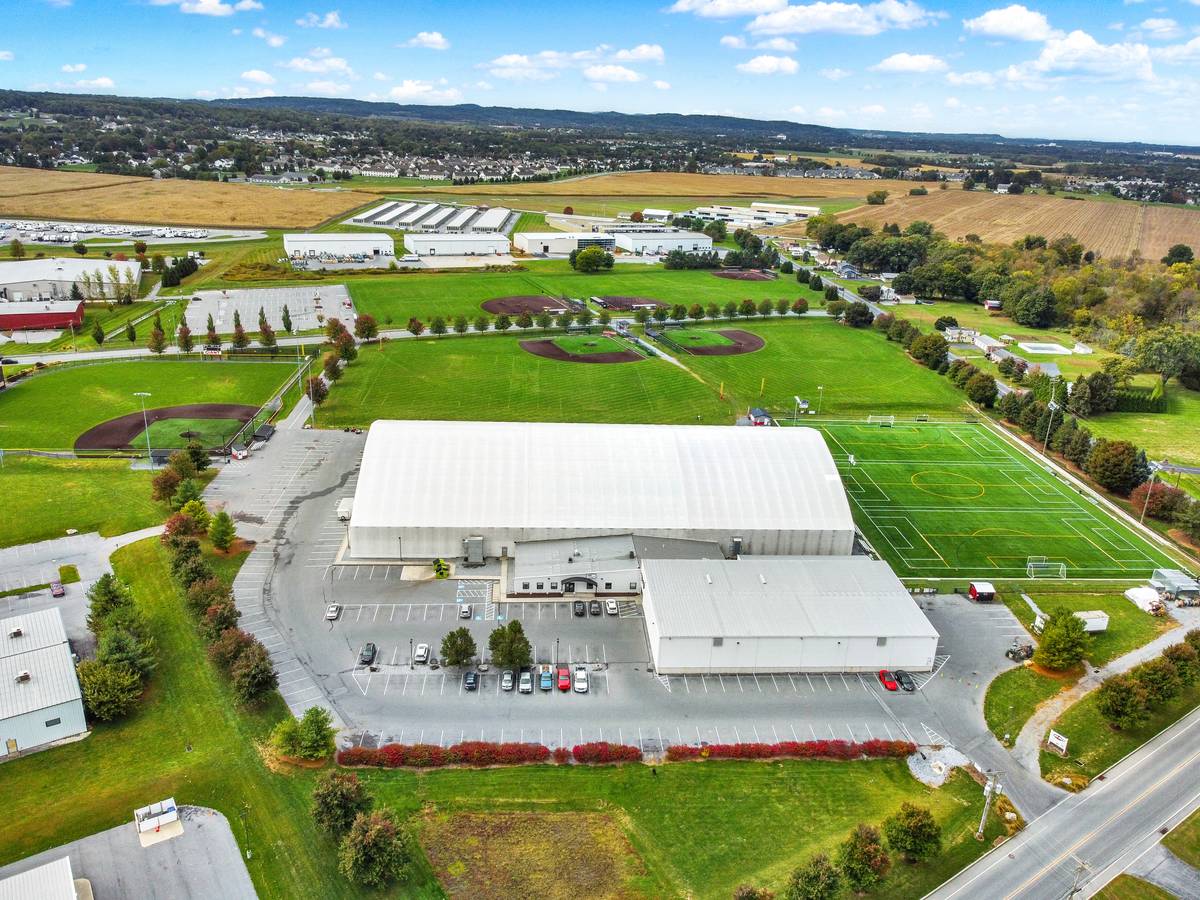This column was submitted to LebTown. Read our submission policy here.
It felt like the WWE came to town.
Microphones. An elevated stage. A crowd full of homemade signs surrounded by digital screens – ‘The Nation of Domination’ VS. ‘The Big Boss Man.’ Three and four syllable chants – BLACK LIVES MATTER – omnipotent acronyms – FUCK THE COPS – followed by the ‘out-of-towners’ demanding the local police to “KNEEL.” I love ‘The Rock.’ I loved pro wrestling. But what kind of man kneels to someone telling them to go fuck themselves? Vince McMahon?
The people who held the microphone I didn’t recognize. They weren’t from Lebanon. I saw strange faces who held strange sentiments on what it’s like to be a “minority” in Lebanon (which is now hovering around 50% Hispanic). I stood in the crowd and listened. Next to me were fellow black former high school football and basketball teammates. We watched these unfamiliar, frenzied, black voices try to TELL US what our experience was like growing up in this small town.
Lebanon isn’t much different than a lot of small towns in America’s rust belt; it hasn’t generated much commerce since the death of Bethlehem Steel over 30 years ago. There are limited places to go, things to do or visit. It doesn’t have money or a consistent culture that integrates with the physical infrastructure of rusted out steel-town. On the north side of town: a constant barrage of base blasts, Reggaeton resonating against the facades of 19th-century row homes. For the past four quarantined months, I walked around Lebanon’s north side and noticed there isn’t much pulling people’s heads up from their phones and away from their WiFi…until their phones told them the traveling protest came to town. I like our Mayor, Sherry Capello – but I don’t know if she has the social acumen or linguistic freedom to tend to these subtle, nuanced cultural issues that Lebanon possesses and represents as a microcosm of America. Apparently white women are supposed to shut up. Or is it speak out? Bow down? Scream for help? How can anyone who doesn’t have the linguistic freedom to explore sensitive issues LEAD?
Bologna. That’s what we got. A dying mall. Remember those things? A Lone Star steakhouse that imports beef in the middle of Cow Country. Now, as a visiting adult, I breathe easy when I come back from L.A. as I don’t mind never dealing with traffic here; I’ll take cows over cars. If Lebanon has anything, it’s consistency: Consistency of a non-existent ‘Black Community’ and cultural presence. I know this because I grew up here. My father, the black parent of my equation, was not here, nor was his family. “Nana, where are the black people?” Unsuccessfully looking left, unsuccessfully looking right, you know what I relied on giving me and the handful of Lebanon’s black children a connection to “blackness?” MTV. BET. ESPN. USA. Television stations owned by massive corporate conglomerates informed us of our “blackness” more than our physical, surrounding communities. We weren’t the only ones whose conception of ‘Black Culture’ was relegated to what was seen on TV. White children, Hispanic children, Asian children all wanted to ‘Be Like Mike’ or listen to P. Diddy & La Familia.
Black children in small towns across America attempting to retain some form of “blackness” were joined by ALL CHILDREN who were infatuated with its commercialized and accentuated versions of black men and women on television screens. If you feel that America has mistreated black people, steals their culture and unfairly profits from their labor – you could start with the #1 content source for media outlets that informs us of a false sense of reality. There weren’t many, if any black men present to tell us culturally-deserted Lebanonians, “That is an unrealistic representation of black men that the media perpetuates to make money off of a young, traumatized culture that has yet to set its feet in any organizing, disciplined doctrines.” Instead, I used to think the black guy who fights ‘Batman’ (1988) by the church bell before he kills Joker was my father. I’d watch it just to get a glimpse of WHO I WAS.
In my small hometown, if I wasn’t wearing the new Iversons, was I black? If I didn’t listen to Biggie or Pac, was I black? If I didn’t excel at sports, was I black? People take roles and run on digital scripts when they feel stripped of them in their physical reality. What is black culture outside of those digital scripts? Do we have a generative culture that existed prior to media? Are slave stories something that can be built on or just worn out? To continually derive personhood from slavery feels like a pathological return to being one. We watch ‘12 Years A Slave’ just to understand who we are.
While being back in my hometown, the traveling band of #BLM supporters who “rallied” the young, ethnic youth of Lebanon felt eerily familiar to the characters I grew up watching on ‘The TV’ (now, our timelines) coming to town. I hate to say it, but I begged my white mother to see the Harlem Globetrotters when they came to town too. I HAD to catch a glimpse of what it meant to be BLACK.
Being black in small town central Pennsylvania can be lonely. Being mixed in those same towns can be even more confusing. But neither of those meant that a lack of cultural presence equates to an inherently racist community. I’m not saying that racism doesn’t exist or I’ve never felt it here, growing up in Lebanon, but it sure as hell didn’t stop me from becoming what I set out to be. I’ve been supported by more overly ingratiated white people than any other ethnicity and I have shared more meals and music with Hispanics than either side of my family. I see more race-mixing and appreciation in this town than I see hatred. Honestly (as if I haven’t been), I’ve never seen more white people want to be Hispanic or have babies with Hispanic people than I have in this town. Puerto Rican’s are always yelling at their white counterparts. We don’t call that racism here – that’s called passion.
It was high noon in the middle of 8th street, thick summer air with no wind; sweating standing still. A voice cut through the rants projected from the podium: “Hey man, COVID ‘sanctions’ cannot be separated from the chain of reactions happening throughout the internet-saturated West.” Might be right. When people of any race are deprived of their automated, day-to-day social roles, we become liable to take on any available representations of community, strength, and especially, identity. Our previous state of normalcy has vacated us and may never return. Belief systems are collapsing and that’s when people are most susceptible to ready-made thought patterns (think of Becky who leaves her parents’ house for a frat house, addicts being Born Again, OR a football player who retires to be vegan). We willingly take on new roles, new identities as a vessel out of the former, deconstructed, collapsed system of belief. From peaceful protests to mob mentalities, we find security within the movements of a group. Apparently protesting is the only thing that stops us from contracting the world’s deadliest disease; has protesting been scientifically incentivized?
#EndCovid protests = “crazy white people”? #BLM protests = “sane white virtue cucks”? Asking for a friend. Because if they don’t know already, it’s my responsibility as a Black American to categorize them the way I don’t want them to categorize me. Things are weird and people’s logic is going out the window – but I think that’s the appeal of the mob. You don’t need critical thinking to fuel a mob, just three or four syllable chants. When I heard those chants in my childhood streets, the same feeling arose as when I was a kid watching black men on TV: “Am I not black enough?”
When I was young, I often felt lonely in this town. A mixed kid with a pink nose and a thick Afro. “No, no. No Español.” Many of us aren’t equipped to psychologically swim, to tread water on our own. Small towns or big cities, direct communities used to prepare individuals to face the world. Now, in a media-driven landscape, the digital world prepares individuals to ‘deal with’ their communities. Remember those things? CUM-MYOON-IT-TEE. When we are absent of individuals groomed by our communities we become strung-out social influencers of a global village. We cling to the largest hashtag that collects our digital experience and activates participation. Why be scared of an algorithm when you can become one? It’s scary how proud we are of hashtags without ever understanding its intent, orientation, or origins.
#BLM came to town — the mobile renditions of blackness I used to see as my opportunity to download identity — but this time, I saw them as a mob of out-of-towners voicing teenage angst that didn’t match my experience growing up in Lebanon. Quiet citizens in the crowd came to me, urging me to speak. But I knew my role: Spectator. So, I said no. I can empathize with their anger, the anger that comes from deprivation of a childhood, town, country that wouldn’t give me the black experience I thought I deserved. I saw their anger. I felt it too, but my thoughts, my words, my beating heart don’t fit into three-syllable chants, hashtags, and face masks. So, I stood still. By doing so, simply listening, I watched as the Mayor came to me, the Police Chief came to me, the Congressman came to me. No matter how waning their authority, these public officials approached ME. I realized I don’t have to take the role that the current wave of anger associated with blackness is dishing out. I can retain my voice, empower others, and still be black. Or could I? I want empowerment like everybody else, but I just can’t say it in a few syllables.
Jared Odrick is a former professional football player and a graduate of Lebanon High School. He writes at ThresholdSite.com.
























